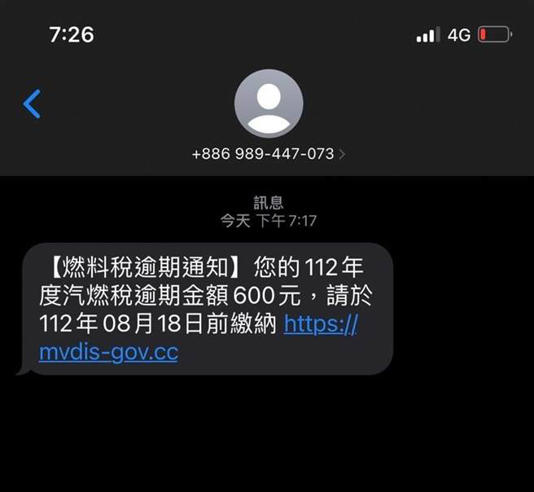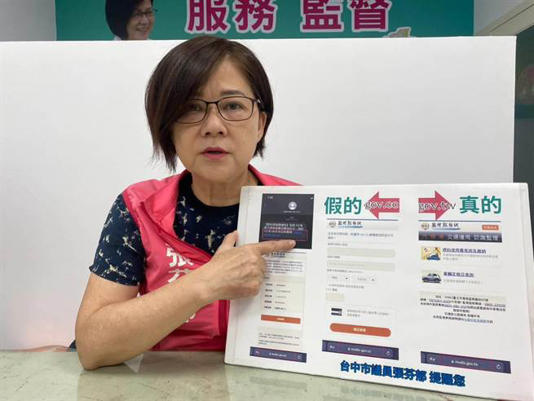At the end of July, the period for paying the vehicle's fuel fees has ended. A Taichung resident recently received a text message reminding him or her that the bill was overdue. The resident was almost tricked since the payment URL link in the text message was the same as the URL for the Vehicles Office. Later, the resident also spoke to the city councilor to warn more people to be wary of such bogus text messages.
Read more: Application methods for New Labor Pension System with new immigrants and foreigners included

The frauds use overdue fuel fees SMS to defraud, Vehicles Office urges the people to remain vigilant and double-check any texts they receive.Photo provided by 台中市議員張芬郁
Although the government has lately encouraged using the URL "gov.tw" to differentiate between legitimate and fake, and the general public has started to become cautious, the techniques of frauds have also changed, and they have started to utilize "gov" to fool the general people. The Vehicles Office underlines that the first paragraph of the URL that ends in "gov.tw" is a URL that is special to the government. When getting SMS URL links from unidentified sources, the general public should take extra caution or check it on the official website or 165 National Anti-Fraud Network (165全民防騙網).
The Taichung Motor Vehicles Office also stated that in the near future, relevant units will stop using text messages to notify people of past-due payments. Instead, they will notify the public in writing and attach an attachment to each district unit considering recent frauds that used "overdue motor fuel bills" to defraud. The Taichung Motor Vehicles Office urges the people to remain vigilant and double-check any texts they receive.







